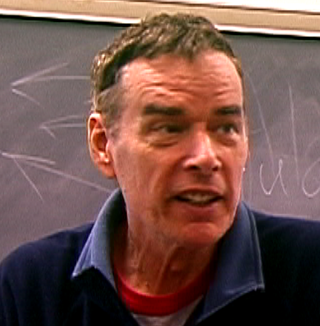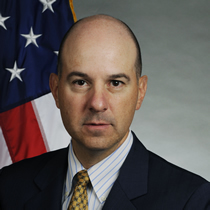Richard Raysman (born October 9, 1946), is a lawyer and a founding practitioner of American computer law, later expanded to become Intellectual Property Law.
Richard Raysman (born October 9, 1946), is a lawyer and a founding practitioner of American computer law, later expanded to become Intellectual Property Law.
Raysman was born in New York City, the son of Victor Raysman, a businessman, and Irene Davies Raysman, a professor. He grew up in Valley Stream, New York, a suburb of New York City, attending Valley Stream North High School. Raysman received a B.S. in 1968 from the Massachusetts Institute of Technology, where he majored in Industrial Management at the MIT Sloan School of Management and minored in computer science.
After graduation from MIT, Raysman worked for the IBM Corporation as a systems engineer for six years, based in New York City. In that capacity he guided the information technology departments of major corporations in implementing new computer systems and upgrading to more advanced hardware. He programmed in computer languages such as Assembler, Cobol, IBM RPG and Fortran.
While working for IBM Raysman attended Brooklyn Law School at night. During that time he joined the U.S.Army Reserve, where he served in the Military Police for six years, doing his basic training at Fort Gordon, in Augusta, Georgia.
Being a systems engineer as well as a lawyer, Raysman realized that the law relating to the purchase and use of computer hardware and software was as yet undeveloped. Although academic articles relating to computer law were starting to appear in law reviews, there were no law firms professing to practice in it. Since the use of computers in a business context was increasing exponentially, Raysman decided, in 1978, to start his own firm in New York City specifically to counsel companies in those transactions. As part of his effort to distinguish the acquisition of software and hardware as an area of the law requiring specific knowledge and expertise, in the following years Raysman wrote articles for the New York Times, [1] the Harvard Business Review, [2] and the New York Law Journal, where in 1981 he became "co-author" of the first monthly column on Computer Law, written by associates under his byline. The New York Times twice cited Raysman as a legal expert on patents and software . [3]
During the last two decades of the 20th century computer law expanded to include issues relating to software licensing, protection of intellectual property on the internet, eCommerce law and information technology employment issues such as outsourcing. These areas of the law are now encompassed in the term Intellectual Property Law.
Raysman's firm, known as Brown, Raysman & Millstein, ultimately grew to 250 lawyers with offices in New York, Los Angeles, Silicon Valley, Hartford and Toronto. In 2006 Brown Raysman Millstein Felder & Steiner, as it was then known, merged with the San Francisco law firm of Thelen and became known as Thelen Reid Brown Raysman & Steiner, having 650 attorneys and offices worldwide. In 2008 Raysman left Thelen, when the firm disbanded. He then practiced at the New York office of Holland & Knight until December 2020.
Raysman concentrates his practice in international outsourcing transactions. Raysman has litigated numerous reported cases for the New York State and Federal courts. He has been selected by Chambers as one of America's leading outsourcing lawyers. [4]
Raysman continues to publish extensively on the topic of Intellectual Property Law, including three ghost-written treatises as well as newsletters and the monthly column that appears under his byline in the New York Law Journal. He is also a regular speaker in this field at numerous conferences, including those sponsored by the International Bar Association, the Outsourcing Interests Group and the Intellectual Technology Law Forum in Europe.
Raysman is admitted to the New York and Connecticut State bars, the Supreme Court of the United States, the U.S. Court of Appeals for the Second Circuit and the U.S. District Courts for the Eastern and Southern Districts of New York.
Raysman is married to the former Georgia M. Urbano, a graduate of the Columbia University School of Law and Connecticut College, who is also the former President and Chairman of the Nantucket Preservation Trust. He has four children.[ citation needed ]

A license (US) or licence (Commonwealth) is an official permission or permit to do, use, or own something.
A software patent is a patent on a piece of software, such as a computer program, libraries, user interface, or algorithm.
Commercial software, or seldom payware, is a computer software that is produced for sale or that serves commercial purposes. Commercial software can be proprietary software or free and open-source software.
The software patent debate is the argument about the extent to which, as a matter of public policy, it should be possible to patent software and computer-implemented inventions. Policy debate on software patents has been active for years. The opponents to software patents have gained more visibility with fewer resources through the years than their pro-patent opponents. Arguments and critiques have been focused mostly on the economic consequences of software patents.
Finjan Holdings (Finjan) is a company that focuses on the licensing of intellectual property. Finjan claims to own patented technology used in enterprise web security tools. Formerly a publicly traded company on NASDAQ (FNJN), it was acquired by the Fortress Investment Group in 2020.

William F. Patry is an American lawyer specializing in copyright law. He studied at the San Francisco State University, where he obtained a B.A. in 1974 and an M.A. in 1976, and then at the University of Houston, where he graduated with a J.D. in 1980. He was admitted to the bar in Texas in 1981, in the District of Columbia in 2000, and in New York in 2001.
Thelen LLP, formerly known as Thelen Reid Brown Raysman & Steiner was a bicoastal American law firm formed by two mergers between California and New York–based law firms. The firm peaked at roughly 600 attorneys in 2006, and had 500 early in 2008, with attorneys with offices in eight cities in the United States, England and China. By the time of its decision to dissolve in late October 2008, it had shrunk to 400 attorneys through layoffs and attrition. Thelen was known for its preeminent construction practice which dates back to the 1930s and the local association between the law firm and contractors and developers of large hydroelectric dam projects. The construction practice offered regulatory, transactional and dispute resolution support. It was also known for its energy expertise, particularly in the electricity regulatory area, as well as for legal advice concerning technology and outsourcing.
Under case number G 3/08, the Enlarged Board of Appeal of the EPO issued on May 12, 2010 an opinion in response to questions referred to it by the President of the European Patent Office (EPO), Alison Brimelow, on October 22, 2008. The questions subject of the referral related to the patentability of programs for computers under the European Patent Convention (EPC) and were, according to the President of the EPO, of fundamental importance as they related to the definition of "the limits of patentability in the field of computing." In a 55-page long opinion, the Enlarged Board of Appeal considered the referral to be inadmissible because no divergent decisions had been identified in the referral.

David "Dave" J. Kappos is an attorney and former government official who served as Under Secretary of Commerce for Intellectual Property and Director of the United States Patent and Trademark Office (USPTO) from 2009 to 2013. Kappos is currently a partner at New York law firm Cravath, Swaine & Moore.
Martin A. Goetz was an American software engineer and pioneer in the development of the commercial software industry. He held the first software patent, and was product manager of Autoflow from Applied Data Research (ADR), which is generally cited as the first commercial software application.
Harness IP is a law firm headquartered in Troy, Michigan. In October 2021, the firm announced it has adopted Harness IP as its new name. The firm previously went by the abbreviated Harness Dickey.
Bristows is a full-service commercial, law firm, particularly known for its technology and intellectual property work.
McKool Smith is a U.S. trial firm with more than 130 trial lawyers across seven offices in Austin, Dallas, Houston, Los Angeles, Marshall, New York City, and Washington, DC. The firm represents clients in disputes involving commercial litigation, intellectual property (IP), bankruptcy, and white collar defense matters.
Ian Ballon is an American Internet and intellectual property litigator, author of books on Internet law and executive director of Stanford University Law School's Center for E-Commerce. He is the author of the 4-volume legal treatise, E-Commerce and Internet Law: Treatise with Forms 2d edition, the leading legal reference book on Internet law, which was first published in 2000. A second edition was published in 2008 and is updated annually. He is also an intellectual property litigator with Greenberg Traurig LLP, a firm of approximately 1800 lawyers.
Mark A. Lemley is currently the William H. Neukom Professor of Law at Stanford Law School and the Director of the Stanford Law School Program in Law, Science & Technology, as well as a founding partner of the law firm of Durie Tangri LLP, which he has been practicing with since 2009.
Roger M. Milgrim is an American intellectual property lawyer, and the author of two multivolume law treatises: Milgrim on Trade Secrets and Milgrim on Licensing.
Andy Johnson-Laird is an English-American computer scientist. He was the president of digital forensics firm Johnson-Laird Inc. in Portland, Oregon, where he lived with his wife, Kay Kitagawa.
Banner Witcoff, Ltd. is an American law firm that specializes in the practice of intellectual property law, including patent, trademark, copyright, trade secret, computer franchise and unfair competition law. The firm engages in the procurement, enforcement and litigation of intellectual property rights throughout the world, including all federal and state agencies, and the distribution of such rights through leasing and franchising. The firm has approximately 125 attorneys and agents in its Chicago, IL; Washington, DC; Boston, MA; and Portland, OR offices.
Harold George Fox, was a Canadian lawyer, scholar, and businessman. He was widely known for his texts on Canadian intellectual property law, litigation, and for his involvement in the zipper business.

The following outline is provided as an overview of and topical guide to patents: